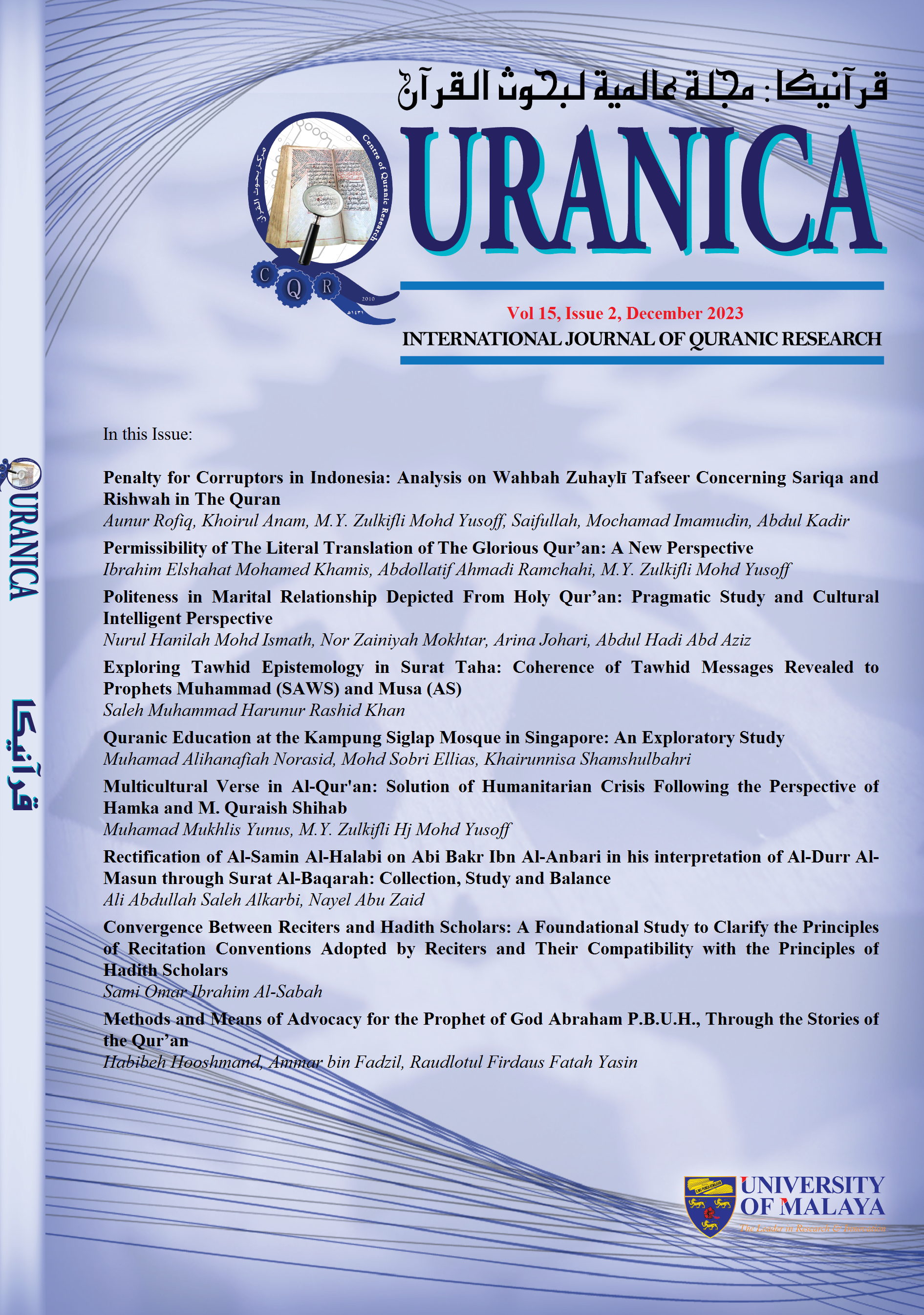Penalty for Corruptors in Indonesia: Analysis on Wahbah Zuhaylī Tafseer Concerning Sariqa and Rishwah in The Quran
DOI:
https://doi.org/10.22452/quranica.vol15no2.1Keywords:
Sariqa, Rishwah, Corruptor, Qaṭ’u al-yad, Death penaltyAbstract
One of Indonesia's biggest problems is the corruption cases that frequently occurred. The Corruption Eradication Commision (KPK) has carried out imprisonment, monetary sanctions, and property confiscation. However, the corruption cases are increasing. The type of this study is library research. This study focused to analyse Wahbah Zuhaylī's thoughts in his book, Tafsīr al-Munīr fī al-Aqīdah wa al-Syarī’ah wa al-Manhāj, especially regarding the death penalty for corruptors and its relevance to the cases in Indonesia. Here Authors analyse sariqa and rishwah terms. The methods used are thematic and content analysis. The results of this study indicate that sariqa and rishwah are parts of corruption. according to Zuhaylī, it is a very dangerous offence and has more dangerous repercussions than murder. To prevent corruption, Zuhaylī generally does not recommend any punishment, including the death penalty, except hand cut - off (qat'u al-yad). It means that, as a preventive measure and a warning to the public, Zuhaylī prioritizes hand cut - off over the death penalty.
Downloads
Downloads
Published
Issue
Section
License
Disclaimer
QURANICA makes every effort to ensure the accuracy of all its contents. However, opinions, discussions, views and recommendations are expressed in this journal do not necessarily reflect the official policy of QURANICA or views of its editors or publishers. Therefore, QURANICA and its publishers will not be liable for any controversy may be arisen. The journal reserves the right, at its sole discretion, to change its terms and conditions of publications.
Copyright
It is a condition of publication that manuscript submitted to the journal have not been published, accepted for publication, nor simultaneously submitted for publication elsewhere. By submitting a manuscript, the author(s) agrees that copyright for the article is transferred to the publisher, if and when the manuscript is accepted for publication.






